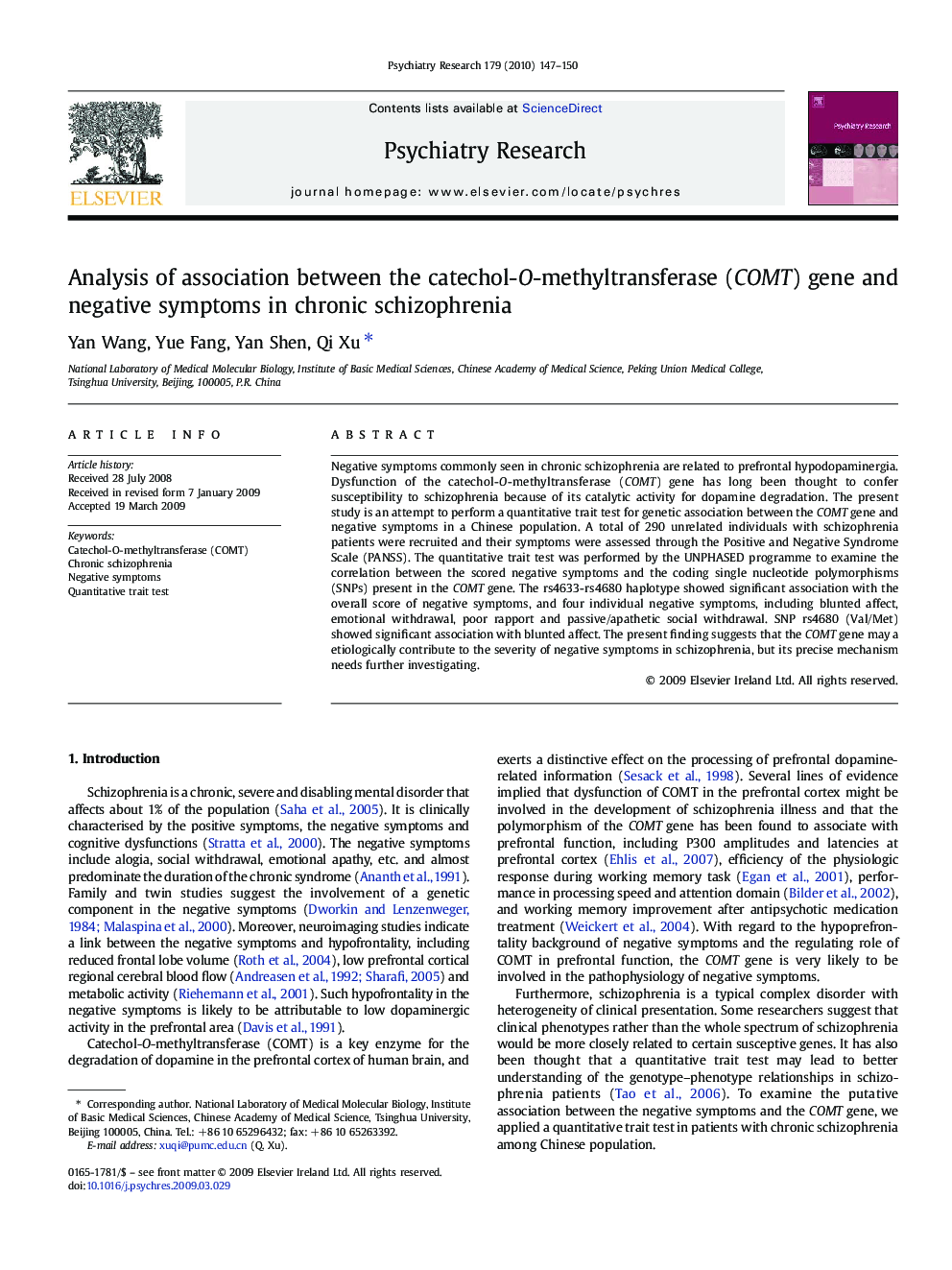| Article ID | Journal | Published Year | Pages | File Type |
|---|---|---|---|---|
| 333888 | Psychiatry Research | 2010 | 4 Pages |
Negative symptoms commonly seen in chronic schizophrenia are related to prefrontal hypodopaminergia. Dysfunction of the catechol-O-methyltransferase (COMT) gene has long been thought to confer susceptibility to schizophrenia because of its catalytic activity for dopamine degradation. The present study is an attempt to perform a quantitative trait test for genetic association between the COMT gene and negative symptoms in a Chinese population. A total of 290 unrelated individuals with schizophrenia patients were recruited and their symptoms were assessed through the Positive and Negative Syndrome Scale (PANSS). The quantitative trait test was performed by the UNPHASED programme to examine the correlation between the scored negative symptoms and the coding single nucleotide polymorphisms (SNPs) present in the COMT gene. The rs4633-rs4680 haplotype showed significant association with the overall score of negative symptoms, and four individual negative symptoms, including blunted affect, emotional withdrawal, poor rapport and passive/apathetic social withdrawal. SNP rs4680 (Val/Met) showed significant association with blunted affect. The present finding suggests that the COMT gene may a etiologically contribute to the severity of negative symptoms in schizophrenia, but its precise mechanism needs further investigating.
